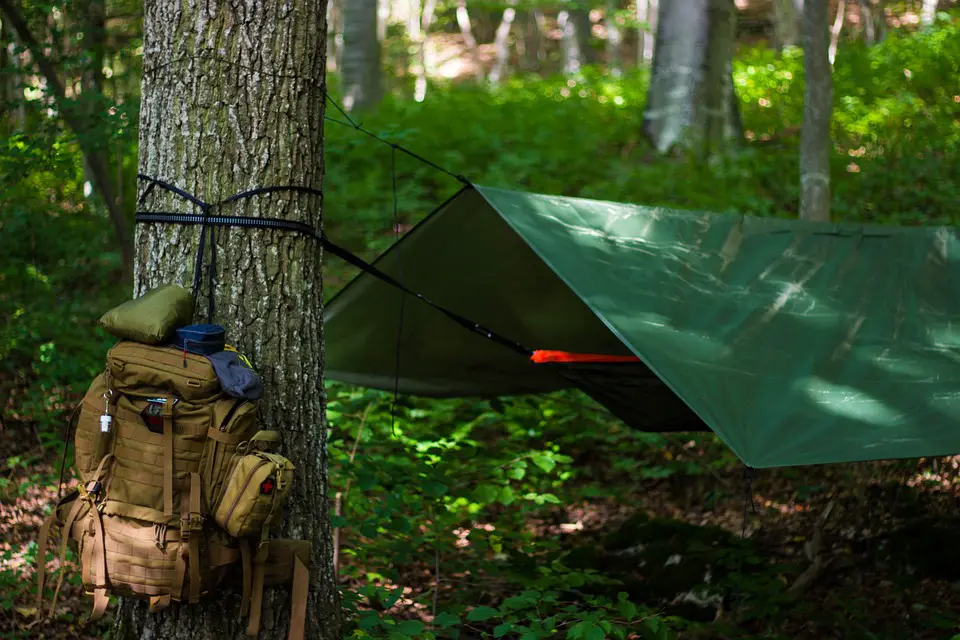Table of Contents
Introduction
Cold weather camping offers a unique experience for adventurous souls who seek a thrilling outdoor adventure. While it may sound daunting to some, camping in freezing temperatures can provide breathtaking landscapes, uncrowded campsites, and a sense of tranquility that is hard to find elsewhere. In this article, we will explore the wonders of cold weather camping and provide valuable tips for a successful trip.
Benefits of Cold Weather Camping
1. Serene Landscapes: Cold weather camping offers a chance to witness untouched winter wonderlands. Snow-covered landscapes, frozen lakes, and frosted trees create a picturesque setting for outdoor enthusiasts.
2. Peace and Solitude: Unlike the peak camping season, cold weather camping attracts significantly fewer people. This allows you to find solitude, reconnect with nature, and enjoy a quiet camping experience.
3. Unique Wildlife Encounters: Cold weather camping provides opportunities to encounter wildlife that is more active during the winter months. From tracking animal prints in the snow to spotting elusive creatures, the experience can be truly extraordinary.
4. Night Sky Splendor: The clear, cold nights offer exceptional stargazing opportunities. With reduced light pollution and potentially vibrant displays of the Northern Lights, the night sky becomes a captivating celestial display.
Essential Gear and Preparation
1. Insulated Sleeping Bag: Invest in a high-quality, well-insulated sleeping bag rated for extreme temperatures to ensure a warm and comfortable night’s sleep.
2. Four-Season Tent: Opt for a sturdy four-season tent with a reinforced structure to withstand heavy snowfall and strong winds.
3. Layered Clothing: Dressing in layers is crucial for cold weather camping. Layering enables you to adjust your clothing based on temperature changes and activity levels.
4. Winter Accessories: Don’t forget to pack essentials like warm hats, gloves, thermal socks, and insulated boots to protect against frostbite and keep extremities warm.
5. Food and Water: Hydration is crucial even in cold weather. Carry insulated water bottles and pack high-energy, easy-to-cook meals that provide sufficient energy for outdoor activities.
6. Safety Measures: Familiarize yourself with cold weather camping safety precautions such as avalanche awareness, emergency signaling devices, and basic first aid knowledge.
Cold Weather Camping Tips
1. Select the Right Location: Research and choose a camping destination that suits your cold weather camping experience and skill level.
2. Check Weather Conditions: Stay informed about the weather forecast for your camping location. Be prepared for sudden changes and keep an eye on any extreme weather warnings.
3. Plan and Organize: Create a detailed itinerary, including campsite locations, hiking routes, and emergency contact information. Share this plan with a trusted friend or family member.
4. Stay Active and Warm: Engage in physical activities to maintain body heat. Regular movement and exercise will keep you warm throughout the day.
5. Fire Safety: Familiarize yourself with fire safety protocols for campfires in freezing conditions. Always carry fire-starting equipment and make sure to follow local regulations.
6. Preserve Nature: Respect the delicate natural environment and follow Leave No Trace principles. Avoid trampling on fragile vegetation and pack out all waste.
FAQs
Q1. Is cold weather camping safe?
A1. Cold weather camping can be safe if proper precautions are taken. It is important to have the right gear, stay informed about weather conditions, and follow safety guidelines.
Q2. What are the main risks of cold weather camping?
A2. The main risks include hypothermia, frostbite, and becoming disoriented in harsh weather. It is essential to be aware of these risks and know how to prevent and treat them.
Q3. What if I don’t have experience camping in cold weather?
A3. If you are new to cold weather camping, it is advisable to start with shorter trips and gradually build up your experience. Take time to learn essential skills, gather knowledge, and go with experienced campers if possible.
Q4. How do I stay warm during the night?
A4. To stay warm during the night, ensure you have a well-insulated sleeping bag, use a sleeping pad for insulation from the cold ground, wear warm base layers, and consider using hand warmers or hot water bottles.
Q5. Can I cook in cold weather?
A5. Yes, you can cook in cold weather. However, it may take longer to boil water or cook food due to lower temperatures. Consider using a camp stove that performs well in cold conditions.





